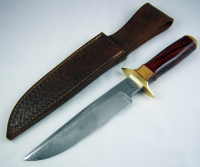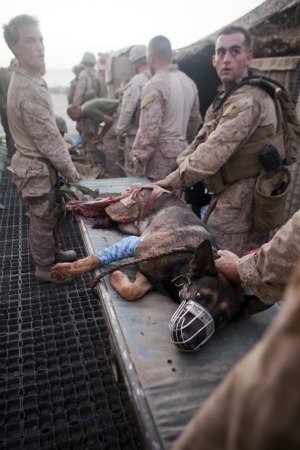Thomas E. Ricks's Blog, page 228
October 4, 2011
The annals of Chinese overreach (II)

I see where a Chinese
navy ship tried to confront an Indian navy ship that was steaming off the
coast of Vietnam.
Just when you think China is
becoming a great power, it
starts acting like a chump. Or like an early 19th-century example of
unbridled capitalism -- with police beating to death a teenager who was caught
near a protest against a
land grab involving a Communist Party official who was playing footsie with
a real estate developer who was plowing up the graves of locals' ancestors.
And don't forget that Chinese
general's 15-year-old son driving a
customized BMW without a license.
October 3, 2011
General Mattis on the American experiment and military ethics

Over the weekend I was re-reading a
terrific lecture Marine General James Mattis, now head of the Central Command,
gave at the Naval Academy in 2004, and was particularly struck by these
passages:
...if we are to keep this great
big experiment called America alive-and that's all it is, an experiment-we need
cocky, macho, unselfish, and morally very straight young men and women to lead
our forces against the enemy.
...Okay, it's not a perfect world,
but America is worth fighting for on its worst day. So, if you have got the
guts to step across that line, as each of you have, then just go out and enjoy the
brawl. Just have a damn good time. Train your men well. Go beat the crap out of
people who deserve it, and when they throw down their gun, then you have won.
Auftrag-static (VIII): I'll meet your Bill Slim and raise you a Gen. Montgomery

Tom Donnelly responds to the British
official.
By Tom Donnelly
Best Defense directorate of American
exceptionalism
I'm all for taking Slim
as a model, but he was much more the exception to the rule rather than the logical product of the interwar British system of leadership. Remember that the title of his wartime memoir was Defeat Into Victory. It began with an acknowledgement of defeat, and in Slim's case -- for he helped to rescue the remnants of the Indian Army on its retreat through Southeast Asia -- something he saw at close hand. Unlike the officers who planned strategy and led British forces in the region, Slim did not underestimate the abilities of the Japanese.
Two further observations. Another way in which Slim differed from the norm of British pre-war officers was his appreciation of the fighting potential of the Indians, Burmese, Malayans -- even, occasionally, Australians -- who actually comprised the bulk of his force. He was a big proponent and practioner of what we now call "Building Partner Capacity." His
predecessors emphatically were not. Secondly, he knew how to win a long, hard slog. His brilliance was more reflected in perseverance than in lightning maneuver; he did practice a kind of "mission
command," and was, for example, more forgiving of Orde Wingate and his raiders than most British senior officers, but he was in no position to conduct a Guderian-like blitzkrieg, a one-campaign war. Rangoon only fell in May 1945 and the war ended before the campaign to retake Singapore, Operation Zipper, began. The Japanese were ground down, at terrible cost.
And Slim's actions when he became British chief of staff were to shake up the system. He took over from Bernard Montgomery, who, true to form, used the occasion of the change of command to whine about things. Slim's response: "What have YOU done?!" A succinct but scathing indictment
of the British system of leadership.
Tom Donnelly
just is, OK?
Air Force budget cutters killing 'Strategic Studies Quarterly'?

That's what I am
hearing on the PME street. Anyone know more about this?
If it is true, I
would say this is the very beginning of a long round of cuts. I suspect the
U.S. military is on the verge of several years of head-spinning cuts. For
example, I've heard talk of big cuts in ground forces...
September 30, 2011
Eight ways to keep young officers from running away from an Army career

This seems to me not to be not quite
part of our recent Auftragstaktik discussion,
but it sure is related to it, because both are about the issue of how senior
leaders handle their subordinates.
By Col. Michael Shaler, USA (Ret.)
Best Defense guest personnel issues
columnist
Leaders
at all levels in the Army play a crucial role in the retention of high
potential junior leaders -- but leaders at the battalion level and above,
because of their experience and 'reach' in the institution -- play an absolutely
crucial role.
The
Colonels, Lieutenant Colonels and Majors; DA Civilians at Grade GS-12 and
above; Chief Warrant Officers 4 and 5; Command Sergeants Major and First
Sergeants have the opportunity and the duty of identifying those with above
average potential and taking part in their further development. This does not
in any way diminish the responsibilities of all these leaders for the
development of all the Soldiers and leaders entrusted to their care - but the
focus on retention of high-potential junior leader is the subject of this
discussion.
Some
suggestions for leaders include:
1.
Understand the leadership climate in your organization.
Develop
methods for assessing (and re-assessing periodically) the leadership climate
existent in your organization. Be alert for 'toxic leaders' and take necessary
action.
2.
Engage your subordinate leaders.
Understand the decision process
that these junior leaders are involved in, provide advice where appropriate,
and timely encouragement. Listen carefully and use your deeper set of
experiences to clarify the situation. Understand how your position in the organization
will affect the perceptions of 'approachability.'
3.
Make timely decisions and communicate them clearly.
4.
Demand ethical behavior and honest reporting.
5.
Build and maintain the TEAM.
6.
Clearly articulate the standards of the organization.
7.
Maintain full involvement in the Senior Rating process.
Assessing
performance, identifying talent, and ensuring the institution fully understands
the situation are essential to the long-term health of the Army. The performance
counseling and feedback associated with the appraisal process are key
components of the leader development process.
8.
Focus on the Future. The task of 'Creating the Future' of the
U.S. Army
is a task that is widely shared -- and it begins with ensuring that the available
talent pool for selecting future leaders is composed of the very best junior leaders we can retain.
Mike Shaler
served 30 years as an Armor Officer and established the Steamboat Leadership
Institute in 1993. This column is excerpted from a longer
essay.
2 dead cops, 2 dead Iranians

This
news article sounds like the beginning of a crime novel set in Iraq. I wish
someone would write one.
BAGHDAD / Aswat al-Iraq: Two
Iranians were found dead, two cops were assassinated and other two wounded, police
sources said.
The source told Aswat al-Iraq that the Iranians were
identified by their passports, while the cops were on duty in a check point in
Doura area, south Baghdad.
No other details were given.
The culprits fled the crime scenes.
Horton hears an associate dean, and thinks of eleven very specific words

Speaking
of students who are veterans, Alex Horton, whom I've followed since he was
a bubblegum-chewing, hard-blogging infantryman in Iraq, has some
interesting observations about starting as a student at Georgetown
University: "... an associate dean spoke about development of the whole
person, sound in spirit and mind. I could not help but think of my own
development on the training grounds at Fort Lewis and the rooftops of Baghdad,
where notions of spirituality and existence were taught at the velocity of
molten shrapnel."
I like those last 11 words.
Rebecca's War Dog of the Week: Drak survives suicide attack in Afghanistan

She's back!
By Rebecca Frankel
Best Defense chief canine correspondent
There
was blood on his legs, seeping out between the impromptu bandages. From the
photos, the blood looked to be caked along his tail, on his hind- and
front-paws, even staining the fibers of his leash a deep red. Five Marines,
three of them dog handlers, flanked the stretcher that carried Drak, a
bomb-sniffing dog with their unit, the 1st Battalion, 5th Marines, Regimental
Combat Team 8, onto a helicopter for emergency evacuation.
Drak,
a four-year-old Belgian Malanois, was injured during an insurgent attack, when
a suicide bomber targeting Marines and Afghan police, detonated a
"vehicle-borne improvised explosive device" outside FOB Jackson in Sangin,
Afghanistan on Sept. 8.
Sgt.
Kenneth Fischer, Drak's handler, was also injured during the attack when
shrapnel from the blast pierced his legs. The pair was flown back to base, then
off to surgery.
"He
should be OK," Fischer told AP ten days after the attack from Bethesda, MD
where he's recovering. "At first, there was some talk about him losing one
of his legs, but not so much anymore. Knowing Drak, he should be fine."
Drak,
described by his handler as a mostly calm and relaxed dog who never took to the
sound of gunfire, is being treated at a facility in Germany but will be transferred
to Lackland AFB in Texas to convalesce. If for some reason the young dog isn't
able to resume his military service, Fischer has other plans for him, like
"spend[ing] his days lying around at Fischer's home at his duty station in
Twentynine Palms, California, or playing frisbee."
(The
AP posted a gallery of Fischer and Drak, worth viewing here.)
In
other news: For those celebrating the Jewish New Year this week, there's a bomb-sniffing dog for that.. The Congregation
Mount Sinai Synagogue in Brooklyn, New York is also, for 50 hours a week, home
to Gus, a retired bomb-sniffing dog, who was adopted by Rabbi Potasnik last
year. Though the synagogue tightens security during the Jewish high holy days,
Gus isn't part of NYPD's assistance. Nowadays he spends his time "barking at
strangers, chasing rubber balls, and chowing down on treats."
CNAS wants to hear from youse
Thomas E. Ricks's Blog
- Thomas E. Ricks's profile
- 436 followers





